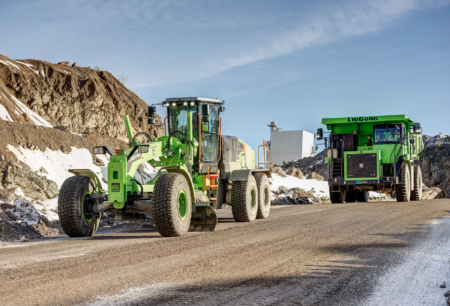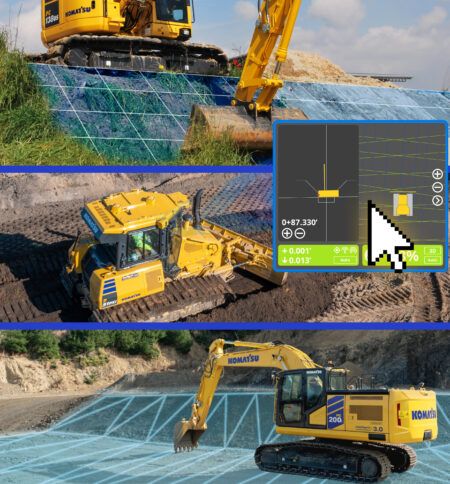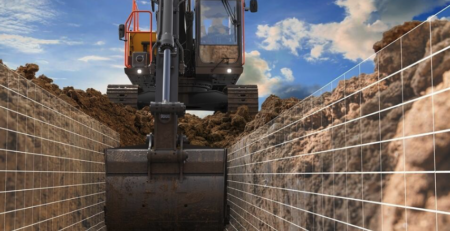The nominations for the International Forklift Truck of the Year (IFOY) Award 2015 are in. In the first selection round, the jury chose 14 trucks and solutions from Clark, Jungheinrich, Still, Toyota Material Handling and Unicarriers for the final round from all the entries.
Newly developed trucks, trucks that represent further developments, or special models with significant technical improvements that have come onto the European market since December 2013 were eligible for the award. “
2014 was a CeMAT year with a whole host of innovations. There was consequently a great deal of interest in entering for the IFOY Award. “Only the best of the best in terms of innovation have made it into the final round,” said Anita Würmser, chairperson of the IFOY Jury.
Three forklift trucks are vying for the award in the category Counter Balanced Trucks up to 3.5 tons. The first nominee is the electric EFG S30s truck from Jungheinrich with a capacity of 3 tons. Using the working title ‘operator in mind’, the Hamburg-based manufacturer has developed and optimized the predecessor generation of trucks with the focus on the driver, bringing a totally redesigned workplace onto the market.
The second nomination went to Still for its RX 20 electric forklift. With 50,000 sold machines, this is the highest-selling truck in the RX series. The powerful all-rounder for indoor and outdoor use can lift 1.6 tons and has been comprehensively optimized in terms of moving capacity, ergonomics and handling.
The last nominee in this category is the Tonero HST LPG from Toyota with a load capacity from 2.5 to 3.5 ton. This totally new model is the LPG version of the combustion-engined hydrostatic model. Its key features are low center of gravity, fast direction change and strong acceleration.
The IFOY Jury has nominated a total of four machines in the category Counter Balanced Trucks above 3.5 tons. The first invitation went to the DFG 540s from Jungheinrich. The diesel forklift with a lifting capacity of 4 tons has been comprehensively overhauled. The highlights of the DFG 540s include five operating programs, engines from the automotive sector, and an ergonomically designed workplace with driver dialog system.
Under the development motto ‘optimum handling power’, Still has further extended its RX 60 series of electric forklift trucks with the introduction of the RX 60-80, a new high-performance machine for heavy, large-sized loads. The 8-tonner not only features numerous ergonomic innovations but also boasts an extremely small turning circle of just 3m.
Toyota Material Handling has two heavy trucks in the running: the Traigo 80 electric truck and the diesel-powered Tonero. The centerpiece of the Toyota Tonero with its 3.5-8-ton lifting power is the newly developed industrial engine, which ensures strong acceleration and high driving and lifting speeds with relatively low fuel consumption.
The second Toyota nominee in this category is the Traigo 80, an 80V electric forklift with a load-carrying capacity of 4, 4.5 and 5 tons. The successor model to the Toyota 7FBMF40-50 was developed for particularly heavy-duty use and is designed for energy efficiency coupled with improved performance in terms of lifting, lowering and traveling speeds.
This year, the jury has used its nominating power to the full in the Warehouse Trucks category, putting forward a total of five machines. The CBX4 from Clark Europe is the first people and burden carrier to make it to the IFOY Test. The truck was newly developed by Clark specially for in-plant transport in large production halls and in plants with extensive grounds, such as maintenance plants, factory trips, in-plant express trips, small parts logistics and special cleaning deployments.
The next nominee is the BT Levio LPE electric pallet truck from Toyota. It is designed for medium to heavy-duty use and has a load-bearing capacity from two to 2.5 tons. The particularly small turning circle and the maximum speed of 12.5km/h make this a fast and agile machine, a major advantage especially for loading and unloading trucks.
When it comes to the current successor to the ECE 225 horizontal order picker from Jungheinrich, the focus is on picking power, energy efficiency and workplace design. Alongside a top speed of 14km/h, improved acceleration and load-dependent cornering and ramp characteristics, the machine also boasts a number of ergonomic innovations.
Nomination number four goes to the new generation of the Still reach truck FM-X. The FM-X is available for load capacities from one to 2.5 tons. It combines compact dimensions with a maximum lifting height of 13m and a residual capacity of one ton. One particularly innovative feature is that the vibrations in the mast are minimal thanks to a new active load stabilization system.
The Tergo URS, a narrow aisle and reach truck from Unicarriers, is the final contender in the round of nominees. It has a lifting height of 10.35m and can carry loads of up to 1.5 tons. In this further development of the well-known Tergo URF, the emphasis is on a high level of service and the total-cost-of-ownership principle.
In the Intralogistics Solutions category, this year’s qualifiers for the final come from Jungheinrich and Still. Still is making its bid for the award with a general contractor project for the entire intralogistics for the new raw materials warehouse of Kuraray Europe. Due to an acute lack of space, the PVB film specialist expanded its production capacity in Troisdorf in North Rhine-Westphalia and also centralized the storage of raw materials in an automatic raw materials warehouse. In the space of just nine weeks,
Still installed the front-to-end warehouse logistics complete with all automatic components. This includes a high-density rack channel system with 3,300 storage places, seven Still pallet shuttles, three automatic FM-X reach trucks, two RX 60 electric forklift trucks, a working platform measuring around 40m in length with seven work stations, conveying technology components, buffer places, and an automatic stacker for empty pallets as well as a material flow computer and the central warehouse management computer. What’s special about this solution is that it is the first time that semi-automatic shuttle vehicles communicate with fully automated reach trucks in order to ensure that raw materials arrive at the right production supply station at the right time.
Jungheinrich has developed a tugger train solution for VEMAG Maschinenbau starting with requirements analysis and extending through the precision planning and organization of processes all the way through to vehicle selection and provision. VEMAG has been building plants and machinery for the food industry for over 60 years. As part of expanded production operations and the reorganization of logistics activities, Jungheinrich was consulted with the aim of identifying potential for optimization in supplies to the production line, which would then pave the way for the restructuring of logistics processes and save both money and resources.
The new logistics solution comprises tugger train loading, supplies to the production areas and the need-based return transport of empties with the help of an EZS 350 tow tractor and trailers of the type GTE.
The key benefits of this customized solution are increased flexibility, efficiency and reliability. The trailer solutions allow flexible use of a wide range of loading devices and easy adaptation to changing requirements. Bundling of transport loads means fewer single-run and empty trips, resulting in a reduction in logistics costs of up to 75%.
Which trucks are ultimately chosen for the IFOY Award 2015 will depend in large measure on the results of the IFOY Test and IFOY Innovation Check, which all nominated trucks have to undergo over a period of one week on the grounds of the official logistics partner Hellmann Worldwide Logistics in Osnabrueck. The IFOY test measures the hard data and compares it with the data for rival machines. The IFOY Innovation Check prepared by the specialists from the Dortmund-based Fraunhofer Institute for Material Flow and Logistics (IML), focuses solely on innovations and the degree of innovation relative to the market. In addition, the jury members drive all nominated vehicles themselves, putting them through their paces during the IFOY test week.
Among other things, the IFOY Award assesses innovative quality, technology, design, ergonomics, handling, safety, cost effectiveness and sustainability. The key criteria for intralogistics solutions include novel/innovative quality, customer benefit, sustainability and marketability of the solution.
The winner in each category will be chosen in March by a jury made up of internationally reputed trade journalists and the leading logistics media from 13 countries. The IFOY Award will be presented on May 5 at the BMW Museum in Munich during the CeMAT@transport logistic trade fair.




